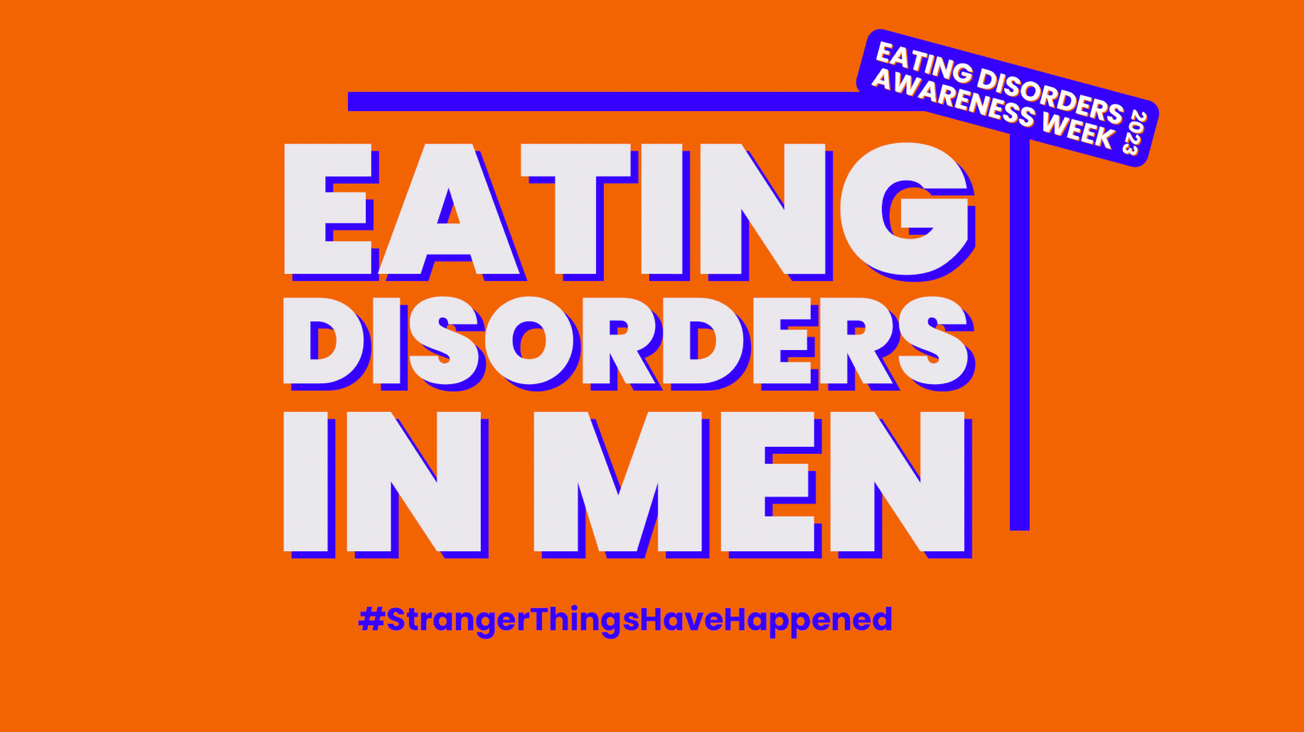By Nel Roden, Second Year English
Trigger Warning: disordered eating and mental illness
Monday 27th February marks the beginning of this year’s Eating Disorders Awareness Week. In 2023, the focus is on men — shedding light on the reality that eating disorders do not discriminate by gender and encouraging men to share their experiences with disordered eating.
Eating disorders have the second highest mortality rate of all mental health disorders, and it is estimated that around 1.25 million people in the UK suffer from an eating disorder, with around 25 per cent of these being male. Despite making up around a quarter of those with an eating disorder, eating disorders in men are often perceived as rare, leading to a significant delay in recognising the symptoms of their illness and seeking vital treatment.
In a survey conducted by the UK’s leading eating disorders charity, Beat, it was found that of the men who took part, ‘one in five had never spoken out about their struggles. Six in ten were disappointed with the help available to men. And four in five felt raising awareness would help more men get treatment sooner.’
Despite the insight offered by their survey, Beat concluded that sufficient research has not yet been conducted to draw definite conclusions about the prevalence of eating disorders amongst men in the UK.
This lack of research stems from a much wider issue regarding the perception of eating disorders, and how they are represented and discussed more generally. Stereotypes surrounding their manifestation often reinforce eating disorders as illnesses that exclusively affect women and girls, which research has found leads to feelings of isolation and shame for the men who suffer.
In a study conducted by the National Library of Medicine, it was found that, ‘With regard to BN [bulimia nervosa] manifestations in males, purging is often manifested as compulsive exercise.’ Subtle differences in how eating disorders present amongst men compared to women contribute to biased stereotypes about eating disorders, whereby purging is perhaps perceived as more concerning or deserving of medical intervention than compulsive exercise.
Stereotypes like these can contribute to disordered eating in men going unnoticed, and are too frequently put down to fussy eating, a busy schedule, or even a cry for attention. It is paramount we deconstruct preconceptions about what an eating disorder looks like in order to encourage men to begin their journey to recovery. With the initial stages of an eating disorder being a vital period for early intervention, many men slip through the net and miss out on support that can be instrumental for recovery.
One survey respondent recalled his lived experience with an eating disorder: ‘Finding out I had an eating disorder was actually a relief. I'd spent five years being incredibly unwell. And no doctor could tell me what was wrong with me. Because I was a man, no one even considered it.’
Systemic issues may also contribute to difficulties accessing eating disorder treatment for men. Hugh Herzig — consultant psychiatrist with STEPs eating disorders service at Southmead Hospital and a Director of the Eating Disorders Health Integration Team (EDHIT) in Bristol — has highlighted the necessity of additional specialist inpatient resources for men suffering with eating disorders.
Hugh explained that efforts by the NHS to improve the quality of patient care and maintain the dignity of female patients have resulted in restrictions to some specialist eating disorder services' ability to admit male patients.
Beat This Together (BTT) is the face of eating disorder awareness here at the University of Bristol. As a student extension of Beat, they participate in campaigning and fundraising for the charity, as well as hosting educational and wellbeing events at the University and in Bristol’s local community. ‘Education is a priority for us. We frequently invite guest speakers to provide engaging life stories, and cutting-edge research in order to educate on best practice.’
Speaking on the misconceptions surrounding eating disorders in men, BTT stated that, ’Excessive exercise may be praised where gym culture often comes first above physical wellbeing, while dieting and calorie counting can easily be mistaken for macro tracking.’
Following the successful passing of the ‘Changing our language to embrace body positivity’ motion in 2020 to change the language used in sports settings and educate staff and students around the dangers of diet culture, BTT are now working alongside Bristol SU and the University’s Sport, Exercise and the Health division to focus on weight stigma and body acceptance language within the University’s sports services. Their aim is to change the narrative so that disordered eating in men no longer goes unnoticed.
‘Medical schools are treating eating disorders as a niche subject': raising awareness this EDA Week
Diet culture and body positivity at the University of Bristol
If you, or someone you know, are struggling with an eating disorder, the University’s Student Health Services encourages those who are suffering to seek help, regardless of your gender.
Local services such as SWEDA and the Bristol Eating Disorder Peer Support Group also offer resources, support group sessions and online support for those who are struggling, as well as resources for friends and family.
Featured Image: Beat / #StrangerThingsHaveHappened
Throughout this year’s EDA Week, BEAT will be sharing the stories of men who have lived with an eating disorder to encourage other men to seek help. To read these, visit BEAT’s website. Find out more about Beat’s EDAW 2023 campaign #StrangerThingsHaveHappened and how you can spread awareness here.









